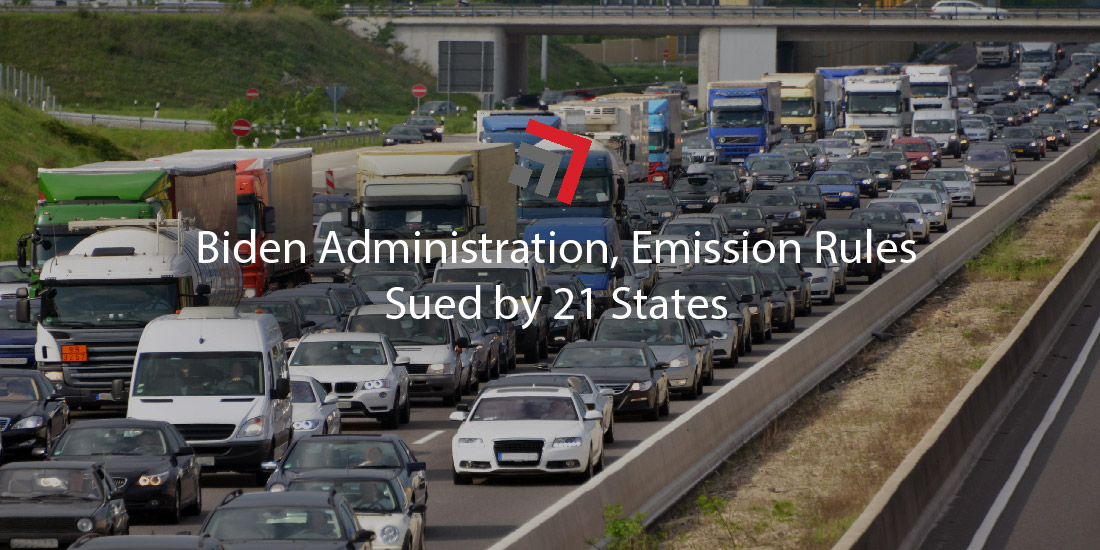The White House is being served.
President Joe Biden and his administration are on the receiving end of a federal lawsuit filed by 21 U.S. states. The legal action claims the administration has overreached its authority with regulating greenhouse gas emissions.
Biden administration charged with overreaching regulatory authority
On Dec. 21, the coalition of states submitted the civil complaint in the U.S. District Court for the Western District of Kentucky, based in Paducah. The lawsuit was signed by the state attorney generals of Alabama, Alaska, Arkansas, Florida, Idaho, Indiana, Iowa, Kansas, Kentucky, Mississippi, Montana, Nebraska, North Dakota, Ohio, Oklahoma, South Dakota, South Carolina, Utah, Virginia, West Virginia, and Wyoming. The 21 states are all plaintiffs for the case.
The states assert that only Congress is authorized to advance emissions rules and, as a result, the Biden administration has violated the law with its regulatory actions.
The lawsuit is formally suing the U.S. Department of Transportation and the Federal Highway Administration (a federal agency under the U.S. DOT). In addition, government leaders were listed in the case by name and title and are also being sued in their official capacities: President Biden, the Biden-appointed Secretary of Transportation Pete Buttigieg and the FHWA’s lead administrator Shailen Bhatt.
Specifically, the three officials are being charged for:
- President Biden: signing two executive orders—13990 (“Protecting Public Health and the Environment and Restoring Science to Tackle the Climate Crisis”) and 14008 (“Tackling the Climate Crisis at Home and Abroad”)—while, also establishing decarbonization as a “national priority”.
- Secretary Buttigieg: establishing and implementing U.S. DOT’s National Highway Performance Program.
- FHWA’s Bhatt: carrying out the duties of the FHWA.
The states maintained their individual, sovereign, rights in the complaint, which includes the assertion that there is no federal law regarding the National Highway Performance Program that specifically directs or requires the U.S. DOT or FHWA to adopt a measure for greenhouse gas emissions.
Rather, the states contest that federal law only encourages state DOTs, as well as local and city governments, to review federal recommendations and environmental considerations, but the power remains vested under existing state and local authorities.
The states also claim that the Biden administration’s emission deadlines and requirements are unrealistic. The filing refers to one rule which requires states to establish, monitor and demonstrate progress toward declining emissions thresholds that will result in phasing out both sales of new internal combustion engine passenger cars by 2035 and unabated coal and oil power plants by 2040.
The states argued that nationwide roads and infrastructure, including power grids, are not ready for the accelerated timeline of zero-emission vehicles. They went on to cite that several of the plaintiff states rely on coal for half of their electricity consumption, including Kentucky, Missouri, and Wyoming (each generates 70 percent of their electricity by coal), as well as West Virginia (uses coal for 90 percent of the state’s electricity).
The rural nature of these states has also drawn concern from the plaintiffs. They note many of their constituents drive long distances, need heavy-duty vehicles for their businesses, and maneuverability for inclement weather and rough terrain. At this time, non-motorized and electric options appear impractical for these regions.
Final Thoughts
Kentucky is the state leading the lawsuit. Former Kentucky Attorney General Daniel Cameron said: “President Biden is unconstitutionally ramming his radical climate agenda through administrative agencies that lack congressional authority to implement such actions. We will not stand by while this administration attempts to circumvent the legislative process.”
The 21 states participating in this legal challenge unearth a prevailing theme in U.S. politics—the power dynamic between federal and state governments. It’s clear that the plaintiff states believe the federal government is tipping the scale.
Contact one of our team members if you have any questions regarding this topic or any others in domestic logistics.
More blogs similar to this:



Recent Comments